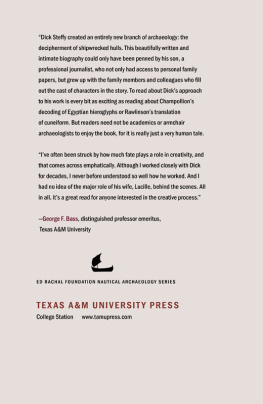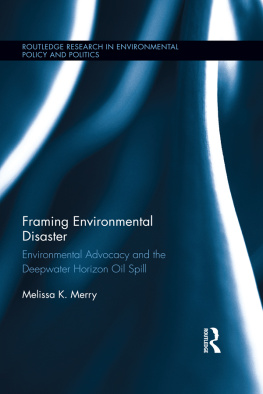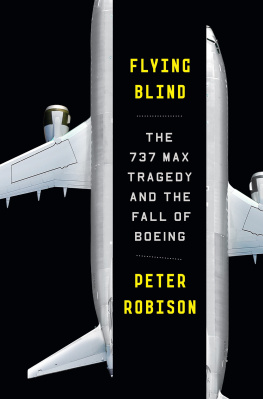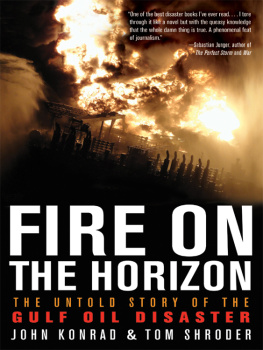DROWNING IN OIL

DROWNING IN OIL
BP and the Reckless
Pursuit of Profit
LOREN C. STEFFY


Copyright 2011 by Loren Steffy. All rights reserved. Manufactured in the United States of America. Except as permitted under the United States Copyright Act of 1976, no part of this publication may be reproduced or distributed in any form or by any means, or stored in a database or retrieval system, without the prior written permission of the publisher.
ISBN: 978-0-07-174132-3
MHID: 0-07-174132-1
The material in this eBook also appears in the print version of this title: ISBN: 978-0-07-176081-2, MHID: 0-07-176081-4.
All trademarks are trademarks of their respective owners. Rather than put a trademark symbol after every occurrence of a trademarked name, we use names in an editorial fashion only, and to the benefit of the trademark owner, with no intention of infringement of the trademark. Where such designations appear in this book, they have been printed with initial caps.
McGraw-Hill eBooks are available at special quantity discounts to use as premiums and sales promotions, or for use in corporate training programs. To contact a representative please e-mail us at bulksales@mcgraw-hill.com.
This publication is designed to provide accurate and authoritative information in regard to the subject matter covered. It is sold with the understanding that neither the author nor the publisher is engaged in rendering legal, accounting, futures/securities trading, or other professional service. If legal advice or other expert assistance is required, the services of a competent professional person should be sought.
From a Declaration of Principles jointly adopted by a Committee of the American Bar Association and a Committee of Publishers
TERMS OF USE
This is a copyrighted work and The McGraw-Hill Companies, Inc. (McGraw-Hill) and its licensors reserve all rights in and to the work. Use of this work is subject to these terms. Except as permitted under the Copyright Act of 1976 and the right to store and retrieve one copy of the work, you may not decompile, disassemble, reverse engineer, reproduce, modify, create derivative works based upon, transmit, distribute, disseminate, sell, publish or sublicense the work or any part of it without McGraw-Hills prior consent. You may use the work for your own noncommercial and personal use; any other use of the work is strictly prohibited. Your right to use the work may be terminated if you fail to comply with these terms.
THE WORK IS PROVIDED AS IS. McGRAW-HILL AND ITS LICENSORS MAKE NO GUARANTEES OR WARRANTIES AS TO THE ACCURACY, ADEQUACY OR COMPLETENESS OF OR RESULTS TO BE OBTAINED FROM USING THE WORK, INCLUDING ANY INFORMATION THAT CAN BE ACCESSED THROUGH THE WORK VIA HYPERLINK OR OTHERWISE, AND EXPRESSLY DISCLAIM ANY WARRANTY, EXPRESS OR IMPLIED, INCLUDING BUT NOT LIMITED TO IMPLIED WARRANTIES OF MERCHANTABILITY OR FITNESS FOR A PARTICULAR PURPOSE. McGraw-Hill and its licensors do not warrant or guarantee that the functions contained in the work will meet your requirements or that its operation will be uninterrupted or error free. Neither McGraw-Hill nor its licensors shall be liable to you or anyone else for any inaccuracy, error or omission, regardless of cause, in the work or for any damages resulting there from. McGraw-Hill has no responsibility for the content of any information accessed through the work. Under no circumstances shall McGraw-Hill and/or its licensors be liable for any indirect, incidental, special, punitive, consequential or similar damages that result from the use of or inability to use the work, even if any of them has been advised of the possibility of such damages. This limitation of liability shall apply to any claim or cause whatsoever whether such claim or cause arises in contract, tort or otherwise.
To Laurie, for everything
Culture is forever. Complacency is a great danger.
U.S. Sen. Slade Gorton, R-Wash., at
the release of the report of the BP U.S.
Refineries Independent Safety Review Panel
(the Baker Commission), January 2007
This incident that happened on board our rig should have never happened. There was eleven buddies of mine that perished and their families deserve to know exactly what happened.
Chad Murray, chief electrician,
Deepwater Horizon
THE VICTIMS
TEXAS CITY
(20042009)
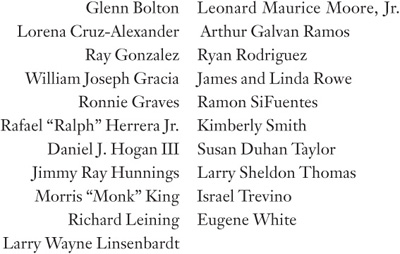
DEEPWATER HORIZON
(2010)
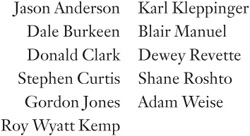
CONTENTS
CHAPTER 1
PIERCING THE FIRES OF HELL
CHAPTER 2
DAWN IN THE DESERT
CHAPTER 3
RISE OF THE SUN KING
CHAPTER 4
FLYING CLOSE TO THE WIND
CHAPTER 5
THERES NOTHING LEFT
CHAPTER 6
IMMINENT HAZARD
CHAPTER 7
THE PRICE OF FAILURE
CHAPTER 8
THE FIXER
CHAPTER 9
THE FALL OF THE SUN KING
CHAPTER 10
NOT ENOUGH
CHAPTER 11
A BURNING PLATFORM
CHAPTER 12
WHO CARES, ITS DONE
CHAPTER 13
PRELUDE TO DISASTER
CHAPTER 14
DROPS IN THE BIG OCEAN
CHAPTER 15
A FOX IN THE HENHOUSE
CHAPTER 16
REEFS OF RUIN
CHAPTER 17
APOLOGIES ALL AROUND
CHAPTER 18
MEET THE NEW BOSS ...
CHAPTER 19
LOST FAITH
CHAPTER 20
ALL FOR OIL
PREFACE
I first knew BP as a tiny metal truck. It was a green-and-yellow Dodge tow truck with a solitary red light atop the cab and the BP shield logo on the side. My brother had one, too. As children we both played with Matchbox cars, the British-made die-cast replicas of real vehicles. The speedy, durable little cars inevitably had accidents that required frequent towing, and the red plastic hooks on the BP wreckers latched beautifully under the wheels of the other cars.
Our collection also included a BP tanker truck and, later, a plastic model of a BP service station. At the time, in the early 1970s, it was about all the contact that anyone in the American public had with British Petroleum.
Even then, BP was among the worlds biggest oil companies, but its presence in the United States was largely unseen. It was a partner in the Trans-Alaska pipeline, and it later bought Standard Oil of Ohio; but it remained largely hidden from the American consciousness.
Public distrust of oil companies in the America grew steadily during the final decades of the twentieth century. A blowout from an offshore platform near Santa Barbara, California, gave rise to the environmental movement, and oil companies became its most reliable villain. As prices soared under the foreign oil embargoes of the 1970s, the public began to believe that Big Oil was in cahoots with OPEC, the Middle Eastern cartel that suddenly demonstrated it could bring the worlds greatest industrialized nation to its knees with the turn of spigot. In 1989, the
Next page

